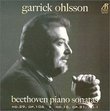| All Artists: James [2] MacMillan, James MacMillan, BBC Philharmonic Orchestra Title: Macmillan: Symphony No. 3 'Silence'; The Confession of Isobel Gowdie Members Wishing: 2 Total Copies: 0 Label: Chandos Release Date: 2/22/2005 Genre: Classical Styles: Historical Periods, Modern, 20th, & 21st Century, Symphonies Number of Discs: 1 SwapaCD Credits: 1 UPC: 095115127520 |
Search - James [2] MacMillan, James MacMillan, BBC Philharmonic Orchestra :: Macmillan: Symphony No. 3 'Silence'; The Confession of Isobel Gowdie
 | James [2] MacMillan, James MacMillan, BBC Philharmonic Orchestra Macmillan: Symphony No. 3 'Silence'; The Confession of Isobel Gowdie Genre: Classical
|
CD DetailsSimilar CDs
|
CD ReviewsHAUNTING...... o dubhthaigh | north rustico, pei, canada | 04/21/2005 (4 out of 5 stars) "It's been said by Robert Fripp, Miles Davis and a Ekki Sven Tuur that it is the silence that Music frames that we must attune ourselves to, as it is therein that the ineffable speaks to us. In both "The Confession of Isobel Gowdie" and Symphony no 3, "Silence", Scottish Catholic composer James Macmillan presents those brackets in such a clear way that you'll find the Ineffable murmuring from the start and beckoning all through this music.
I find myself moved more by this approach to music than the polyphonous, and often ecstatic articulations of John Taverner, with his Byzantine avocation. Brought up Catholic, you tend to miss that mystery that the Latin hymns brought to liturgical events.... And that's not to suggest that this is Church music. On the contrary, it is almost anti-liturgical, especially the Confession, which is a requiem for a woman who was tortured to confess to all sorts of diabolical acts and then burned at the stake. OJ made a cleaner job of it. In any case, the power of this music rails against a mysogyny that has never quite ever gone away in the Catholic Church, and pehaps Scotland as well. Premiering between Sibelius' Violin Concerto and Beethoven's Fourth, it was greeted enthusiastically. Listen, you'll understand why. Symphony No. 3 deserves to be regarded as among the truly great symphonies of our time, along with Rautavarra's No. 8, and Henryk Gorecki's Symphony No. 3. It shares that abandonement to the infinite that one must make if one's journey through life is to touch what is most deeply true and utterly incapable of being articulated. I found this piecs haunting me long after I put the disc away." |

 Track Listings (2) - Disc #1
Track Listings (2) - Disc #1



